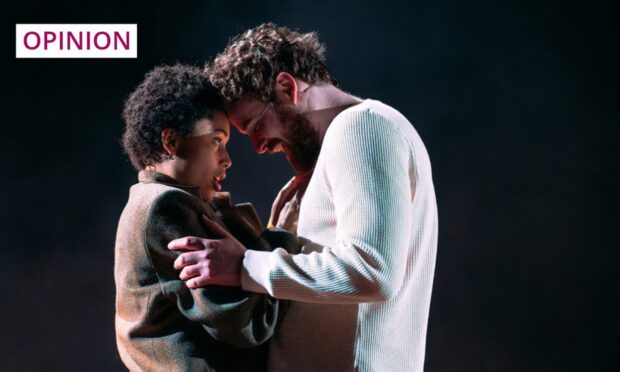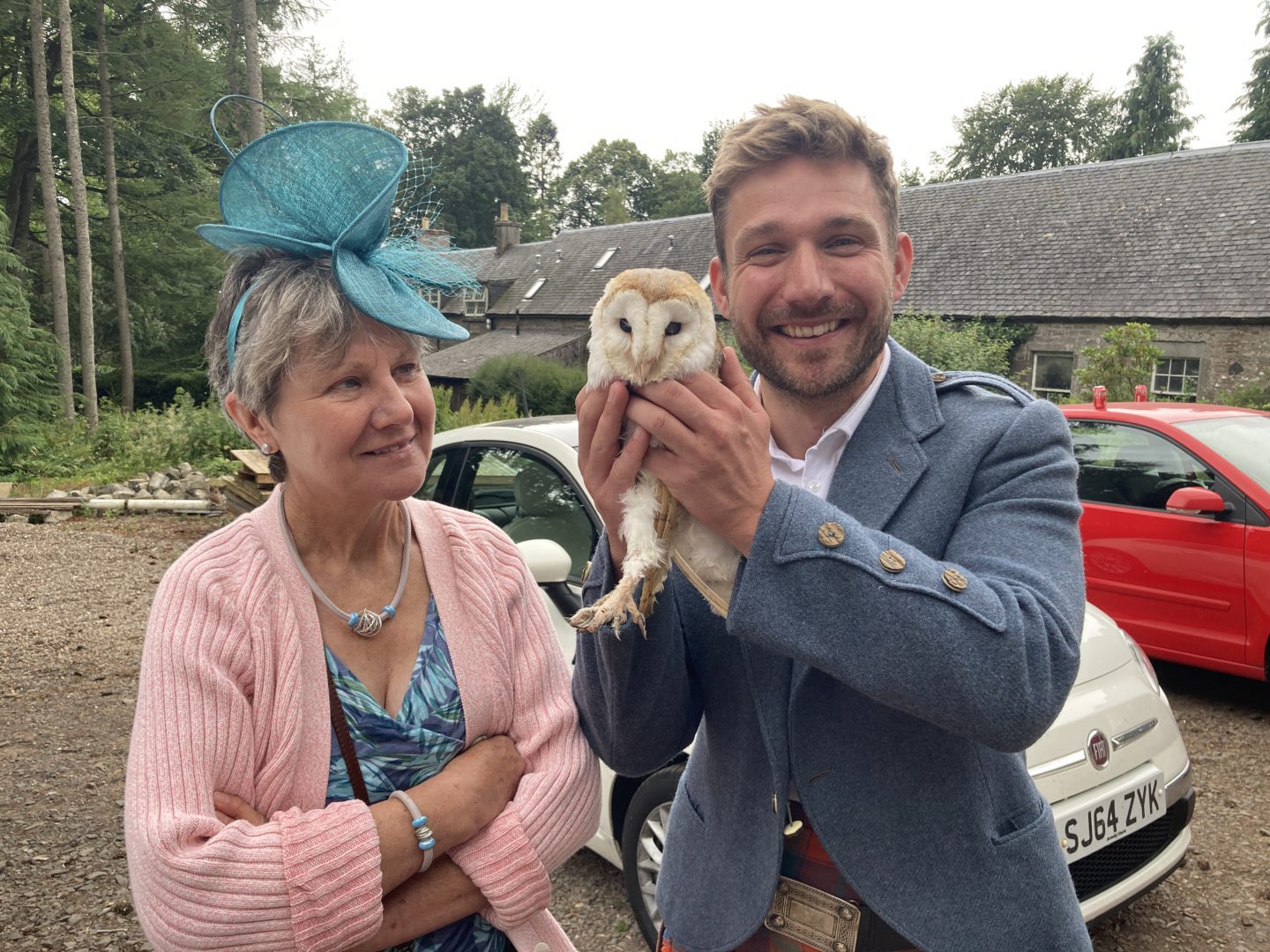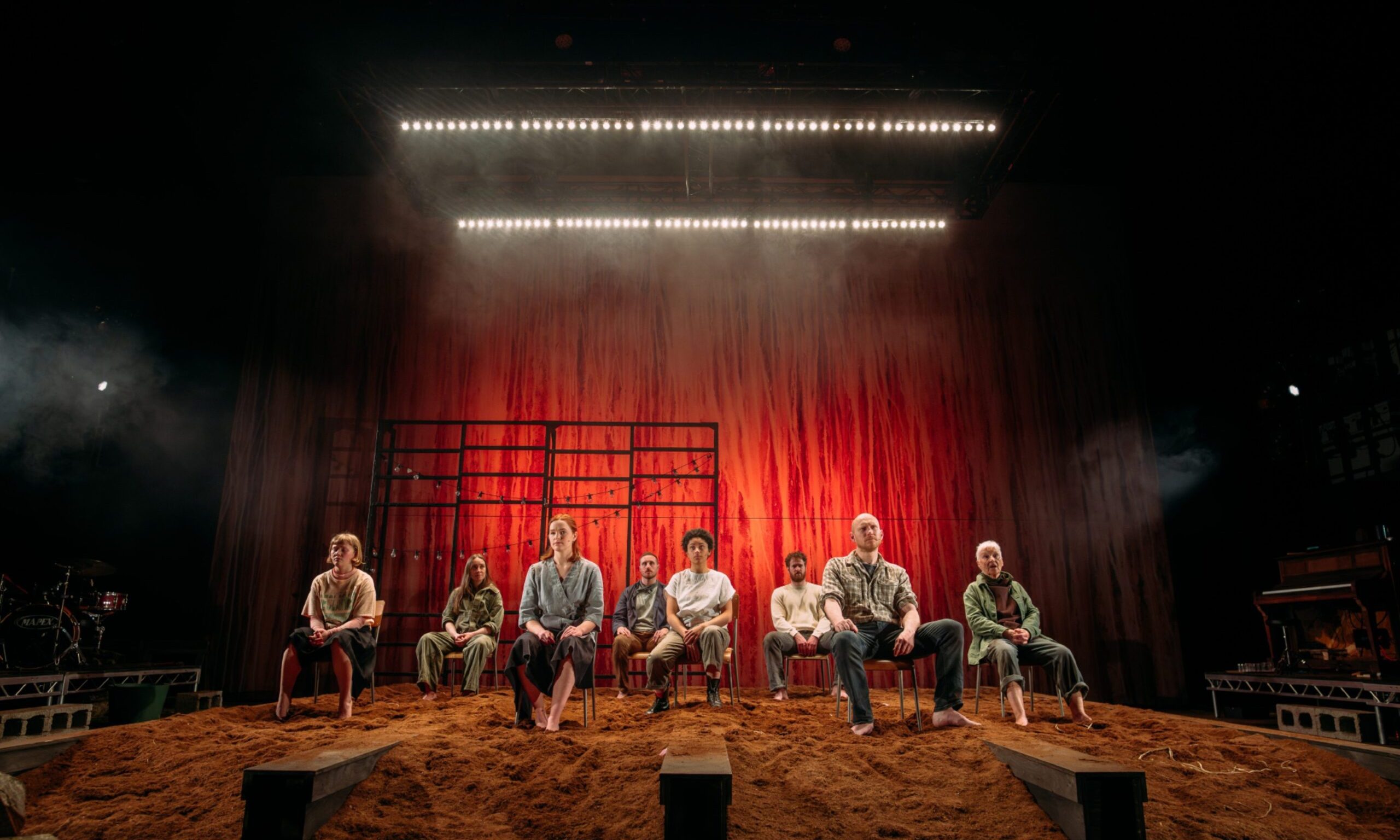The violence in my childhood was brought back to me by the new stage version of Sunset Song.
The classic Mearns novel has been adapted into a play by Elgin quine Morna Young, and is now touring Scotland. I saw it twice during its opening run at Dundee’s Rep Theatre, and it comes to His Majesty’s Theatre in Aberdeen May 8-11, and Inverness’s Eden Court May 16-18.
The play follows Chris Guthrie; a young woman growing up on a smallholding farm in fictional Kinraddie. It’s a big story, taking in the impact of the First World War, drought, cultural change in the north-east. And, throughout, is a thread of male violence.
John Guthrie, the father, beats his son often. Early in the play, he rapes his wife. I doubt his character would recognise it as such. He took her body as his marital right, which she had no authority to deny him.
His wife falls pregnant, and gives birth to twins. This brings her brood of bairns from a manageable four to an overwhelming six. She is, again, raped. She poisons the twins and herself. The inquest reveals she was pregnant at the time of her suicide. John weeps uncomprehendingly later in the play: “Why would she leave us?”
Chris herself goes on to marry a violent and loving man.
I grew up in 1990s Angus. Men beat and bullied women often. Usually their partners; sometimes their mothers or their daughters. I know several women in my area were abused by violent partners.
My dad was violent. He hit my mum on a number of occasions, over years. After watching the Sunset Song play for the second time, my mum and I had an open talk about it. I share it here in the hope it may help someone else.
Mum recently uncovered a handwritten note from my dad, decades old. He wrote emotionally, apologising for hitting her.
My mum told me that she twice went to the doctor due to my dad’s violence. Once, whilst assessing my mum’s injuries, the doctor remarked that “these things happen”.
The second time, the doctor was unwilling to acknowledge how my mum came to be injured, or offer assistance. “I was crying for help,” my mum told me. But no help was forthcoming. Both doctors were women.
As a bairn, I’d run and hide from the arguments and violence at home. But I still saw plenty.
Scotland’s culture of shame and silence around male violence
There’s long been a culture of shame and silence around male violence in Scotland. It helps to trap people in destructive relationships. The experience sounds bewildering.
“Here’s the person who is meant to care for you, being violent. It causes an incredible confusion. Shame, guilt, confusion,” my mum explained.
I fled that relationship, and stayed fearful of serious connections for a long time, lest some violence in my genes emerged
“There’s the guilt of staying in a marriage like that, of keeping you kids in that marriage. And the fear of standing up to him. The fear of my children being without a father.
“There’s not a day I wake up that I don’t feel regret about what [my children] experienced. My fear and confusion led me to lash out at you, too.”
I carried this experience of violence into my first serious relationship. When I was about 18, I was living in a bedsit with a partner. We were skint, stressed, isolated and having a massive row. We were screaming and shouting, and I punched my fist through a wall, exposing wires and bloodying my knuckles.
I scared the hell out of my partner, and scared the hell out of myself. I fled that relationship, and stayed fearful of serious connections for a long time, lest some violence in my genes emerged.
‘What is the antidote?’
Many women who have experienced domestic abuse will go and see Sunset Song. Morna Young told me that she kept survivors in mind when writing the play.
I’m interested in the male audience members who have used violence and intimidation to control their partners. No one wants to see themselves as an abuser. But, maybe, seeing the damage John Guthrie does to his family, and the damage he does to himself through his violence, will counsel them.
“How can I forgive you?” Chris Guthrie asks, as she reflects on her now-dead husband, thinking of all the love they shared, and all the terror he visited upon her.
“No blame,” my mum told me. “No finger pointing. How do we [as a society, as individuals] move beyond this. What is the antidote?”
Alistair Heather is a Scots language activist, campaigner and newspaper columnist
- If you or someone you know is suffering as a result of male violence, there is local help available via the Women’s Aid website



Conversation